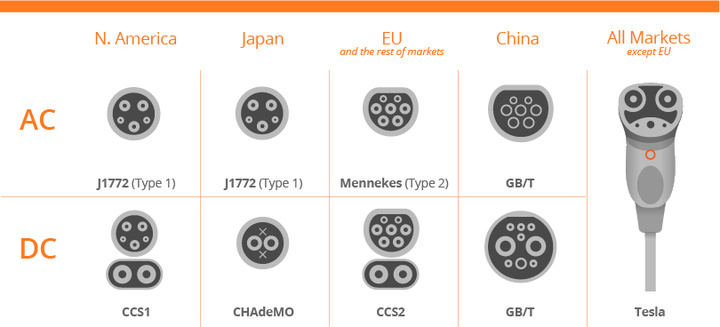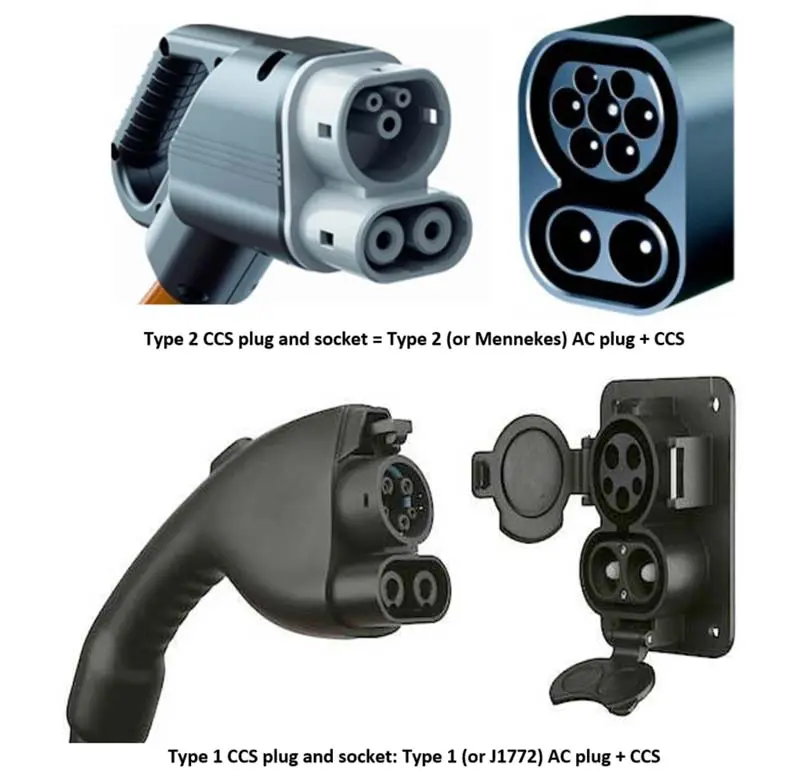hotline Tel
How to distinguish EV connector standards
Electric vehicle (EV) charging connectors are both standardized and constantly changing. On the one hand, EV charging connectors are standardized based on today's technological constraints. Standards are available in major regional markets, including North America, Japan, the European Union, and China. But current charging technology is power limited. This FAQ first reviews the state of standardization of EV charger connectors and then introduces liquid-cooled connectors for higher power and faster charging technologies. Finally, a brief overview of emerging MW-scale high-voltage charging, wireless charging, and opportunistic charging technologies, as well as opportunistic charging technologies and connectors for heavy-duty vehicles such as Class 8 trucks and buses, and the potential impact these developments will have on automotive EV charging .
Standards for EV charging connectors have been narrowed. For AC charging, North America and Japan use the SAE J1772 Type 1 connector, Europe uses the IEC 62196 type 2 (also known as Mennekes) connector, and China uses a version of the GB/T connector. In North America and Europe, DC charging uses a variant of the Combined Charging System (CCS). CHAdeMO is a Japanese standard, and China adopts GB/T (Figure 1). In addition, there are regional differences in available power levels related to differences in supply voltages.

DC fast charging connector
Every electric vehicle sold in North America can use a charging station with a J1772 connector. All EVs except Tesla use J1772 for Level 1 (120V) and Level 2 (240V) charging. Tesla owners receive an adapter cable for connecting their EV to a charging station with a J1772 connector.
Level 1 charging is not used as homes in Europe do not have 120V service. Instead of J1772, the IEC 62196 Type 2 connector is used for Level 2 AC charging. Tesla is again the exception, with most of its EVs using proprietary connectors. However, a few Tesla models use IEC 62196 Type 2 connectors. In Europe and North America, Tesla's Level 1 and Level 2 chargers use proprietary connectors, and other manufacturers' EVs require adapters.
Current DC fast chargers use 480 V mains power for faster charging. This input voltage level is expected to rise in the future as higher power and faster charging technologies become available. In North America, the CCS Type 1 connector "combines" the J1772 connector with the addition of two high-speed charging pins underneath. In Europe, CCS combines IEC 62196 type 2 with two high-speed charging pins, called CCS type 2.
Headquartered in Germany, the CharIN (Charging Interface Initiative) Association aims to establish CCS as the global standard for EV DC fast charging. With more than 250 members, CharIN is working to develop new technologies and extend their scope to MW charging systems for large vehicles such as Class 8 trucks, electric ferries, ships and aircraft.
CHAdeMo was developed by Tokyo Electric Power Company (Tepco) for EV DC fast charging across Japan. In contrast to CCS systems, CHAdeMO connectors do not share some connectors with J1772 inlets. Since CHAdeMO is strictly for DC fast charging, EVs using this connector also include a separate J1772 inlet for AC level 1 and 2 charging, requiring a larger charging port area to accommodate two separate charging inlets .
Tesla is the exception to the above discussion. Its vehicles use the same proprietary connector for Level 1, Level 2 and DC fast charging. Tesla EV charging connectors accept all voltages. Non-Tesla vehicles can use Tesla Level 1 and Level 2 AC chargers with appropriate adapter connectors. Only Tesla vehicles can use the company's Supercharger DC fast-charging stations. Supercharging stations use an authentication process to ensure that only Tesla vehicles can be charged. Even with an adapter, it is not possible to charge non-Tesla EVs at Tesla Supercharger DC fast charging stations.
